This article was co-authored by Laura Marusinec, MD and by wikiHow staff writer, Eric McClure. Dr. Marusinec is a board certified Pediatrician at the Children's Hospital of Wisconsin, where she is on the Clinical Practice Council. She received her M.D. from the Medical College of Wisconsin School of Medicine in 1995 and completed her residency at the Medical College of Wisconsin in Pediatrics in 1998. She is a member of the American Medical Writers Association and the Society for Pediatric Urgent Care.
There are 16 references cited in this article, which can be found at the bottom of the page.
wikiHow marks an article as reader-approved once it receives enough positive feedback. This article received 13 testimonials and 80% of readers who voted found it helpful, earning it our reader-approved status.
This article has been viewed 519,876 times.
Bedwetting in children, which is also known as sleep enuresis or nocturnal enuresis, can be a frustrating issue. The good news is that if your child is younger than 7, this is pretty normal and the problem should go away on its own. There are steps you can take to help solve this problem faster, but so long as your child isn’t experiencing painful or discolored urination, it probably isn’t anything to worry about. In adults, bedwetting is often the sign of an underlying issue, and it’s important to see your doctor and talk to them about what’s going on.
Steps
Expert Q&A
-
QuestionI'm 10 and I wet the bed every night. Could this happen because I'm worried?
 Daniel Wozniczka, MD, MPHDr. Wozniczka is an Internal Medicine Physician, who is focused on the intersection of medicine, economics, and policy. He has global healthcare experience in Sub Saharan Africa, Eastern Europe, and Southeast Asia. He serves currently as a Lieutenant Commander in the U.S. Public Health Service and a Medical Officer for the Epidemic Intelligence Service in the CDC. He completed his MD at Jagiellonian University in 2014, and also holds an MBA and Masters in Public Health from the University of Illinois at Chicago.
Daniel Wozniczka, MD, MPHDr. Wozniczka is an Internal Medicine Physician, who is focused on the intersection of medicine, economics, and policy. He has global healthcare experience in Sub Saharan Africa, Eastern Europe, and Southeast Asia. He serves currently as a Lieutenant Commander in the U.S. Public Health Service and a Medical Officer for the Epidemic Intelligence Service in the CDC. He completed his MD at Jagiellonian University in 2014, and also holds an MBA and Masters in Public Health from the University of Illinois at Chicago.
Internal Medicine Physician Anxiety and medical psychiartic problems are indeed associated with bed wetting. Talk with your primary care doctor.
Anxiety and medical psychiartic problems are indeed associated with bed wetting. Talk with your primary care doctor. -
QuestionDoes masturbating make a person wet the bed?
 Daniel Wozniczka, MD, MPHDr. Wozniczka is an Internal Medicine Physician, who is focused on the intersection of medicine, economics, and policy. He has global healthcare experience in Sub Saharan Africa, Eastern Europe, and Southeast Asia. He serves currently as a Lieutenant Commander in the U.S. Public Health Service and a Medical Officer for the Epidemic Intelligence Service in the CDC. He completed his MD at Jagiellonian University in 2014, and also holds an MBA and Masters in Public Health from the University of Illinois at Chicago.
Daniel Wozniczka, MD, MPHDr. Wozniczka is an Internal Medicine Physician, who is focused on the intersection of medicine, economics, and policy. He has global healthcare experience in Sub Saharan Africa, Eastern Europe, and Southeast Asia. He serves currently as a Lieutenant Commander in the U.S. Public Health Service and a Medical Officer for the Epidemic Intelligence Service in the CDC. He completed his MD at Jagiellonian University in 2014, and also holds an MBA and Masters in Public Health from the University of Illinois at Chicago.
Internal Medicine Physician No, masturbation is unrelated to bed-wetting. To try to solve any issues with bed-wetting, I recommend you follow the steps listed in this article.
No, masturbation is unrelated to bed-wetting. To try to solve any issues with bed-wetting, I recommend you follow the steps listed in this article.
Warnings
- Do not intentionally wake your child up in the middle of the night to have them preemptively use the bathroom. It’s only going to lead to more frustration and sleeplessness, for you and your child.⧼thumbs_response⧽
- If your child starts wetting the bed out of nowhere after several months of dry nights, or they have painful or discolored urination, see a doctor. Snoring is a concern as well, since bedwetting combined with snoring is a sign of sleep apnea.[20]⧼thumbs_response⧽
References
- ↑ https://health.clevelandclinic.org/how-to-help-your-child-stop-wetting-the-bed-2/
- ↑ https://www.health.gov.au/sites/default/files/bedwetting-in-childhood.pdf
- ↑ https://health.clevelandclinic.org/how-to-help-your-child-stop-wetting-the-bed-2/
- ↑ https://www.nhs.uk/conditions/bedwetting/
- ↑ https://www.healthychildren.org/English/health-issues/conditions/genitourinary-tract/Pages/Nocturnal-Enuresis-in-Teens.aspx
- ↑ https://www.cdc.gov/sleep/about_sleep/sleep_hygiene.html
- ↑ https://www.cdc.gov/sleep/about_sleep/how_much_sleep.html
- ↑ https://www.ncbi.nlm.nih.gov/books/NBK62717/
- ↑ https://www.continence.org.au/information-incontinence-english/pelvic-floor-muscle-training-for-men
- ↑ https://caringforkids.cps.ca/handouts/behavior-and-development/bedwetting
- ↑ https://www.nature.com/articles/s41598-020-70195-8
- ↑ https://www.nhs.uk/conditions/urinary-incontinence/
- ↑ https://www.health.gov.au/sites/default/files/bedwetting-in-childhood.pdf
- ↑ https://www.kidney.org/patients/bw/BWmeds
- ↑ https://www.rch.org.au/kidsinfo/fact_sheets/Bedwetting/
- ↑ https://www.rch.org.au/kidsinfo/fact_sheets/Bedwetting/
- ↑ https://www.kidney.org/patients/bw/BWrash
- ↑ https://pubmed.ncbi.nlm.nih.gov/21167501/
- ↑ https://www.ncbi.nlm.nih.gov/books/NBK62715/
- ↑ https://caringforkids.cps.ca/handouts/behavior-and-development/bedwetting
About This Article
Whether you're a child, teen, or adult, stop bedwetting by limiting fluids a few hours before bedtime. Make sure to get a full eight glasses of water a day, just do so in the morning and afternoon so your body can process the liquid before nighttime. If you drink caffeine or alcohol, limit your intake since that can increase your need to urinate. Another possible cause of bedwetting is the pressure caused by constipation, so make sure to eat a diet rich in fiber, such as legumes, leafy greens, and fruit. To learn more from our Doctor of Medicine co-author, like how to set a bedwetting alarm, keep reading the article!
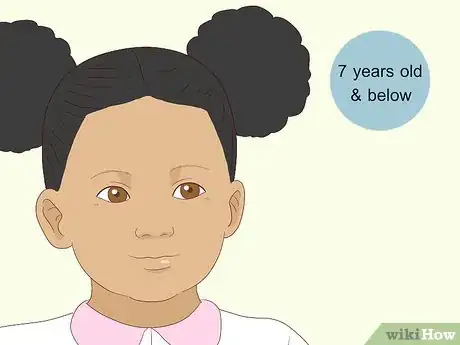
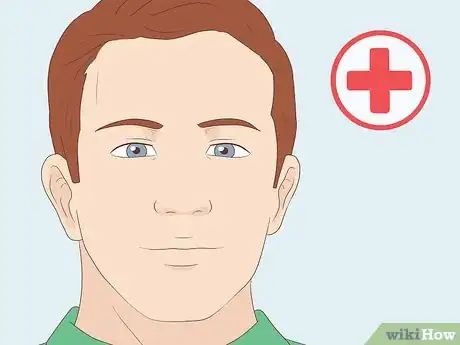
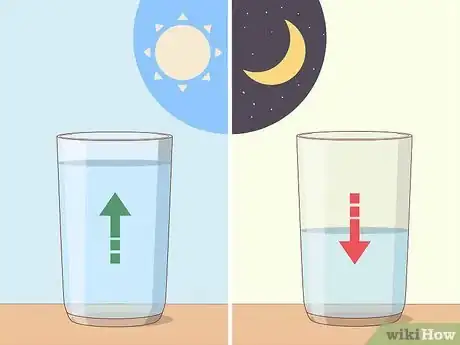
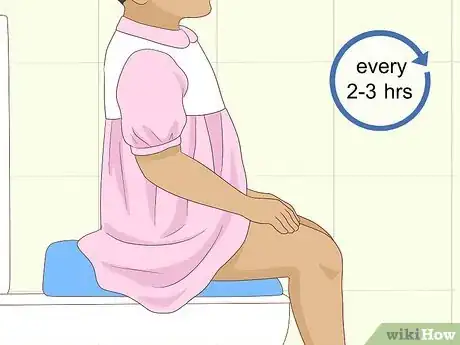
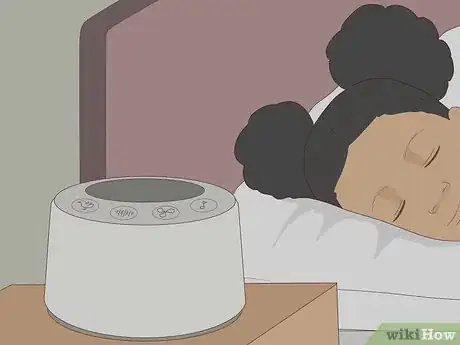
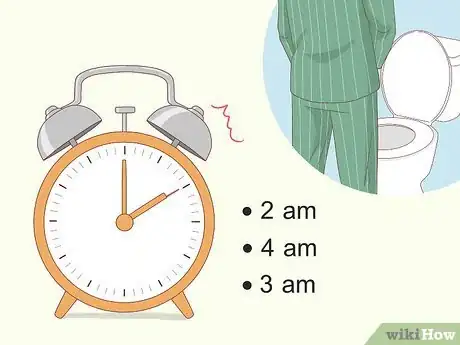
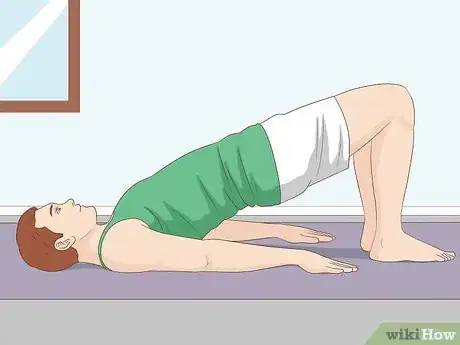
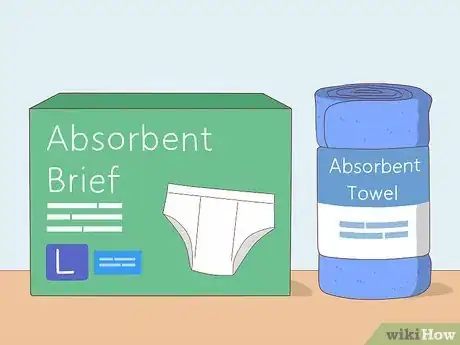

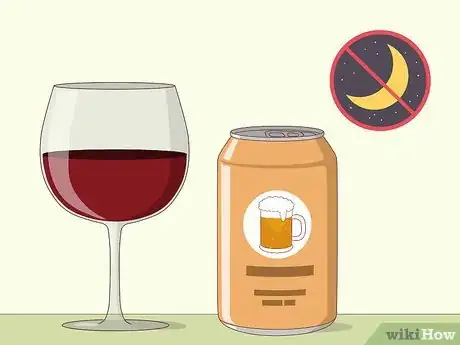
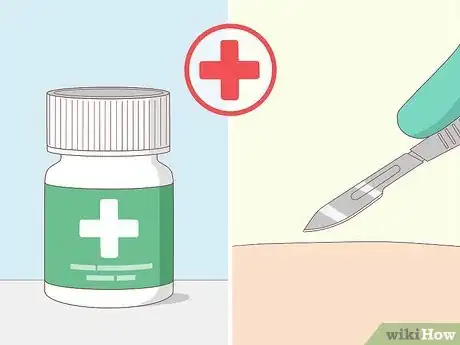
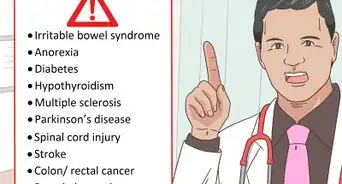


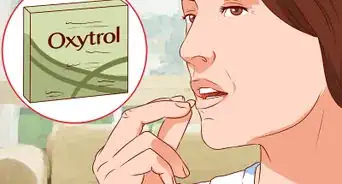

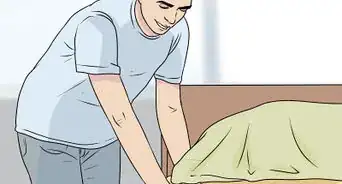


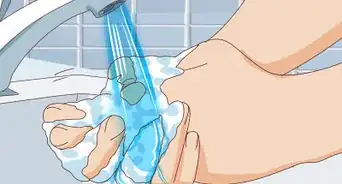
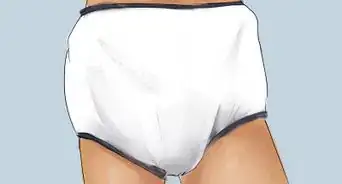



















































Medical Disclaimer
The content of this article is not intended to be a substitute for professional medical advice, examination, diagnosis, or treatment. You should always contact your doctor or other qualified healthcare professional before starting, changing, or stopping any kind of health treatment.
Read More...